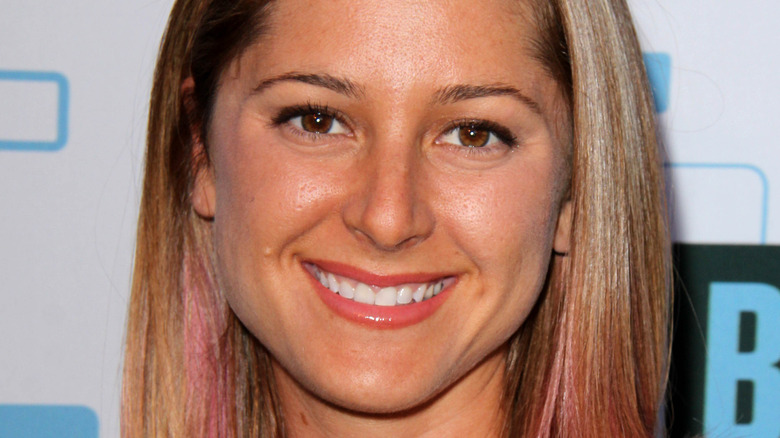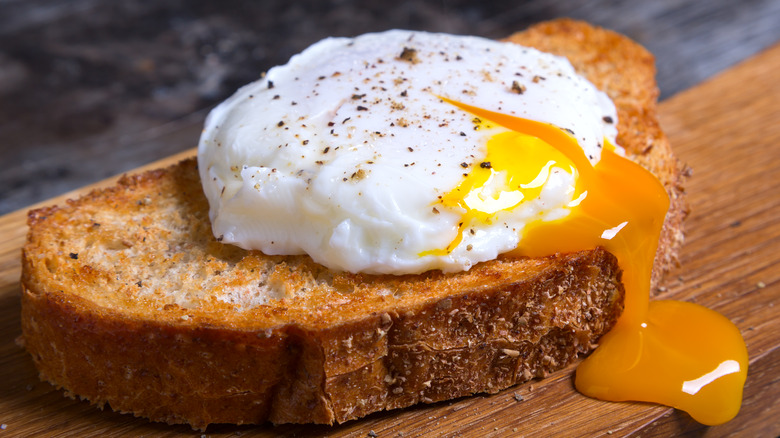Poached Eggs Should Start With Cold Eggs, According To Brooke Williamson
There are some recipes that are hard to master, even if you're an expert. Ina Garten is a pro, but years ago she told HuffPost that Boston cream pie was the one recipe she just couldn't get right. Even Jamie Oliver couldn't master su filindeu, possibly the most difficult pasta to make in the world. And unless you're a professional baker, you'll probably have trouble making the notoriously difficult recipe for laminated dough, like that used to make croissants. But sometimes, even the simplest-seeming recipes can be hard to get right, especially if you're just a home cook.
Take eggs Benedict, for example. It's not too fancy, yet people may stress out over making a flawless Hollandaise sauce that is emulsified and doesn't break. But without perfectly poached eggs, the Hollandaise doesn't even matter — the dish won't be a success. And while poaching eggs might seem simple, there's more to it than just adding eggs to boiling water and hoping things come out just right. Thankfully, Brooke Williamson shared a top-notch tip for successful poached eggs, and it can help even beginner chefs get those picture-perfect rounds of breakfast glory.
Keep them cold
Though you should always bake with room-temperature eggs, this isn't necessarily true for every recipe. In fact, "Top Chef" and "Bobby's Triple Threat" star Brooke Williamson shared her tips for making poached eggs at the 2022 Food & Wine Classic, and her biggest piece of advice was to use cold eggs. According to Williamson, this helps the eggs firm up once they hit the hot water, reducing the amount of egg white whisps that get into the pot otherwise, and retaining the round shape of the egg. Notably, about 90% of an egg white consists of water while the rest is protein, per Exploratorium. Water molecules naturally stick together and move slower in colder temperatures. Raw egg white proteins are rather tightly curled together but begin untangling and creating new connections when heated.
If you've struggled with this aspect of poached egg cookery before, you're not alone. Author J. Kenji López-Alt said that it took him years to master poached eggs. His tips include using fresh eggs, which "have tighter whites and yolks that help them retain their shape better as they cook," and cracking each egg gently into a fine mesh strainer before adding it to the water so the more liquid-y whites strain off (via Serious Eats). Combined with Williamson's tips to use cold eggs and to add salt and vinegar to the poaching liquid, and even beginner cooks stand a chance at churning out poached eggs worthy of a diner menu cover photo.

